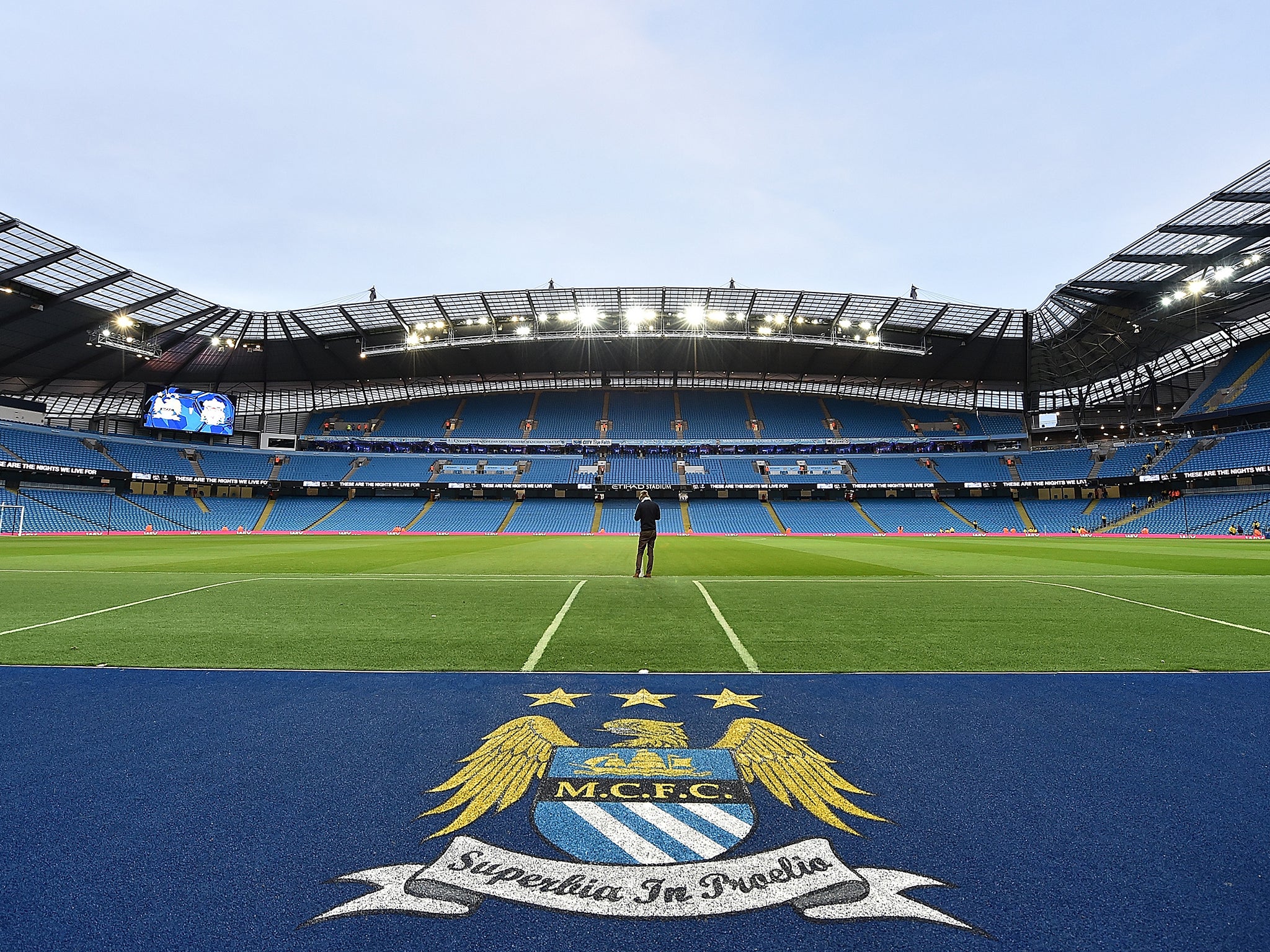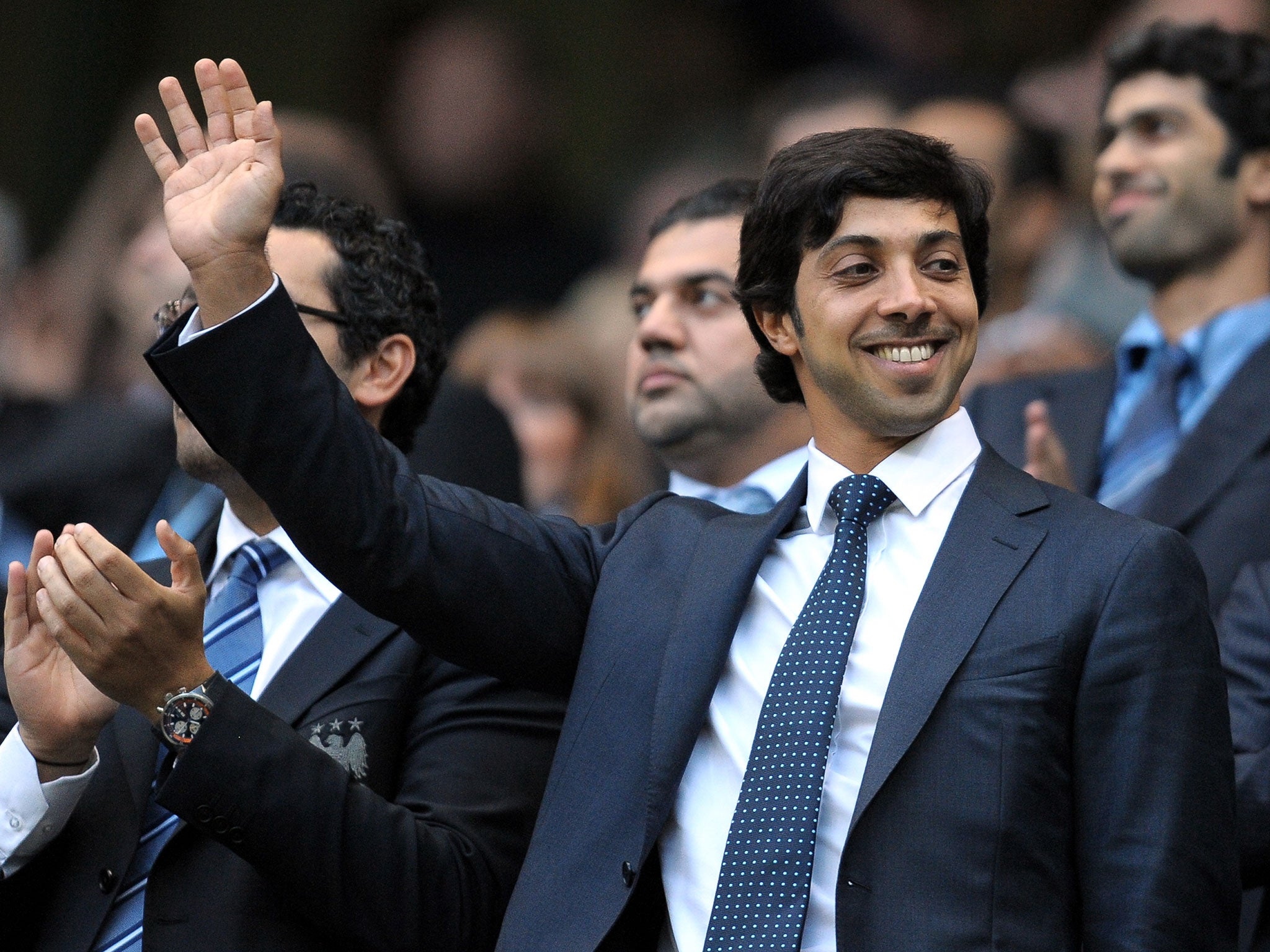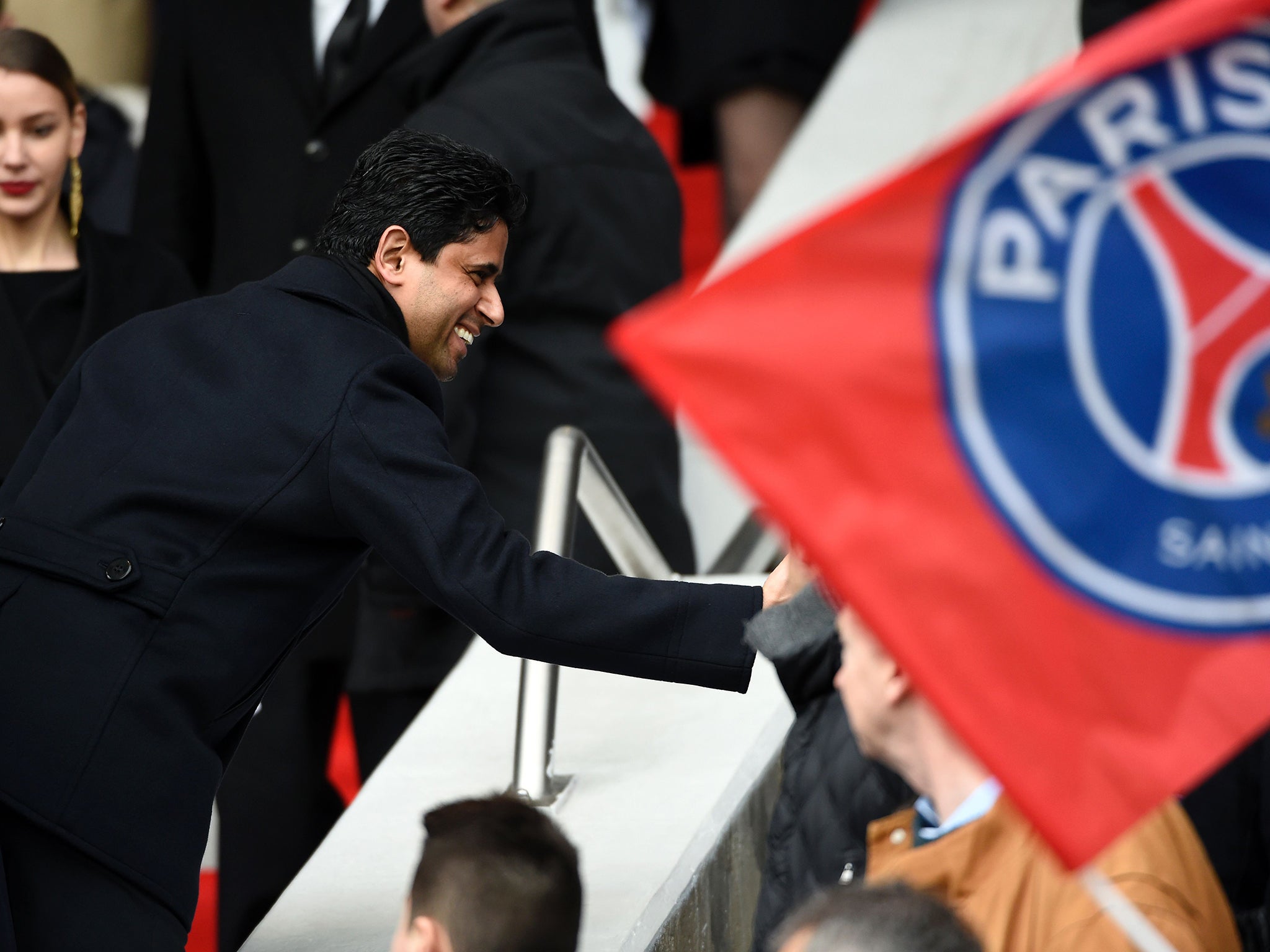Champions League: Why not just ignore FFP and build a super-club in spite of the rules?
Uefa have proven that Financial Fair Play has no real impact on super-rich clubs

Your support helps us to tell the story
From reproductive rights to climate change to Big Tech, The Independent is on the ground when the story is developing. Whether it's investigating the financials of Elon Musk's pro-Trump PAC or producing our latest documentary, 'The A Word', which shines a light on the American women fighting for reproductive rights, we know how important it is to parse out the facts from the messaging.
At such a critical moment in US history, we need reporters on the ground. Your donation allows us to keep sending journalists to speak to both sides of the story.
The Independent is trusted by Americans across the entire political spectrum. And unlike many other quality news outlets, we choose not to lock Americans out of our reporting and analysis with paywalls. We believe quality journalism should be available to everyone, paid for by those who can afford it.
Your support makes all the difference.As excitement builds around a billionaire buy-out at Everton and, across Stanley Park, Liverpool target Mario Gotze as the centrepiece of a £200 million transfer splurge, you could be forgiven for assuming Uefa's Financial Fair Play (FFP) has dissolved into dust. Having flinched in the battle with Man City and PSG – two clubs who laughed off the threat via a series of legal challenges - some frantic back-peddling in Zurich has seriously undermined Uefa's integrity.
Muscles are flexing, and restrictions are easing; only time will tell if City’s victory has left FFP mortally wounded.
But in England, the looming shadow of an £8billion television deal has already shrunk FFP into relative insignificance. All 20 Premier League clubs have mutated into billionaire businesses overnight and as they tower above world football those petty regulations have been duly drop-kicked back into mainland Europe, where those excluded from the party are destined to feed from our off-cuts for the next decade or more. Clearly the Premier League will now survive – easily - within its own means, but the combination of these two factors – new-found wealth and the undermining of FFP’s regulatory power - opens up an intriguing question: is there room for the dawn of another Sheikh Mansour?

For any prospective sugar-daddies out there, here’s a thought: why not just ignore FFP and build a super-club in spite of the rules? Take the financial hit, take the squad size restrictions, take the tournament disqualification, even, and spend five to seven years in an isolation booth of rapid expansion. Many of the world’s major corporations daily disregard government legislation (absorbing their fines and trade sanctions) in order to continue amassing wealth to the detriment of the planet: why not try it in the Premier League?
This is unchartered territory, but given that the regulations themselves are crumbling under scrutiny it is not impossible that such an approach would work; invest heavily like Manchester City or Chelsea and simply accept, with a shrug and a tut, all that follows.
The sanctions imposed by FFP thus far are complex - not least because they have slithered and shifted under pressure from legal challenges and secret meetings – but in short very little has been done to shut down the expansionist ideologies of, most pertinently, Paris Saint-Germain and Manchester City.
Technically Uefa have the power to impose tournament bans and points deductions on clubs that fail to meet their specifications, but this appears increasingly unlikely. The biggest sanctions so far were £42 million fines and restricted Champions League squad sizes for PSG and Man City, but in both cases these punishments were dramatically reduced after the clubs agreed to curb their spending habits. Many argue that a far greater factor was Belgian lawyer Jean-Louis Dupont’s challenge to FFP’s legality (he posits that it is contrary to basic EU rules on free markets), but clearly it would be unjust to argue that FFP has not dramatically curtailed the spiralling debts in European football. After all, aggregate net losses of Europe's clubs have fallen from €1.7bn in 2011 to €400m in 2014.
But this does not mean it would not benefit a multi-billionaire to invest Mansour-style in a mid-sized Premier League club. Mansour has invested an estimated £1.2bn in Man City since his takeover in 2008, but since the initial cash explosion his intelligent investments (in infrastructure and global branding, increasing their revenue by around 300 per cent since 2009) have led to Man City’s annual losses halving year on year since the £197 million registered in 2011. Not only are they about to become profitable and snuggly positioned as one of the world’s most powerful brands, but the recent £265 million investment from a Chinese consortium for a 13 per cent stake has valued the club, as a whole, at £2bn. In simple terms, that means that Sheikh Mansour’s eight year venture has already yielded him an outright profit of £800 million (if he were to sell today).
Attempting to predict the outlay needed in 2016 to embark on a similar project (given the changes in transfer fees, wages, TV income, etc) would be futile, but is it completely mad to suggest that such a splurge would be worthwhile - even if it results in a few years of fines, Champions League disqualifications, and even Premier League points deductions (the ultimate price of failing to comply with the PL’s own version of FFP)?

To date, the impact of failing FFP regulations has been minimal, with increasingly watered down sanctions suggesting that UEFA’s commendable dream is slipping through their fingers; perhaps, then, a space has yawned open for another multi-billionaire to push the legislation to its limits. FFP already excludes infrastructure investments from its calculations, whilst the obscene inflation of TV money offers Premier League clubs a massive head-start in competing with Europe’s elite.
There are various other potential blockades - not least the Premier League’s own financial caps that set maximum wage expenditure at £60 million and £105 million losses over three years – but the parameters will shift as the new TV money pours in, whilst the legality of the regulations (and the conviction of the prosecutors) is yet to be tested.
Perhaps - like all-powerful oil companies happily absorbing fines for environmental damage rather than abide by the law – a billionaire might be able to build a super-club in spite of the meagre, diminishing powers of those attempting to sanction an industry left unregulated for far too long. What billionaire would care if his football club, having yielded an £800 million profit on his investment in eight years, was forced to spend a few years outside of Europe and scrambling to make up points deductions imposed domestically?
Modern football is a world of seething corporate capitalism where profitability has become an obsession to the detriment of the sport’s integrity; it may seem bizarre – it would certainly be wildly unethical and unpopular – but a few years in the wilderness is all it would take to build something menacing. The clubs either side of Stanley Park would be ideal candidates.
Join our commenting forum
Join thought-provoking conversations, follow other Independent readers and see their replies
Comments